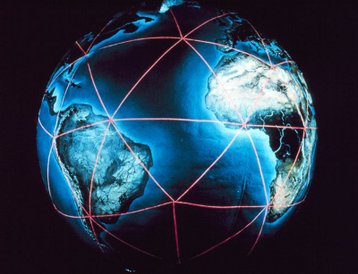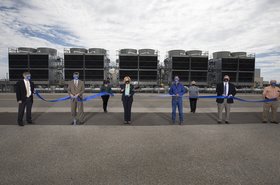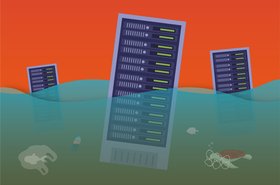The Department of Energy will fund nine studies designed to help improve the Energy Exascale Earth System Model program.
E3SM plans to create a comprehensive model of the Earth system. The projects, lasting three years, will together cost $7m.
Understanding the planet
“As our computational capabilities at the national laboratories have grown, it has become possible to model environmental systems with greater precision and predictive power,” Dr. Chris Fall, Director of the DOE’s Office of Science, said.
“These studies will help provide more accurate representation of several particularly complex Earth system processes and thereby improve the E3SM’s overall predictive abilities.”
The studies funded include:
- Improving the Capabilities and Computational Efficiency of the RTE+RRTMGP Radiation Code at The Trustees of Columbia University in the City of New York
- Improving the initial state of biogeochemical components in Earth System Models at Regents of the University of California, Irvine
- Improving the Parameterization of Cloud and Rain Microphysics in E3SM using a Novel ObservationallyConstrained Bayesian Approach at University Corporation for Atmospheric Research, Boulder, CO (Collaborative)
- Interactions between land use, fires and dust as drivers of global climate change at Regents of the University of California, Irvine
- Efficiently resolving the terrestrial-aquatic interface in E3SM with sub-grid methods to improve coastal simulations at University of Notre Dame du Lac
- Investigating Cloud Feedbacks in Earth System Models at University of Miami (School of Marine and Atmospheric Science)
- Ocean physical-biogeochemical interactions in the CMIP6 and E3SM Earth System Models at Georgia Tech Research Corporation
- Evaluating the influence of plants on hydrologic cycling: Quantifying and validating the role of plant processes and stomatal conductance at University of Washington
- The Role of Deep Convection and Large-scale Circulation in Driving Model Spread in Low Cloud Feedback and Equilibrium Climate Sensitivity at Regents of the University of California, Los Angeles
The European Union, meanwhile, is funding the Destination Earth project, which hopes to build a digital twin of the entire planet. In the next issue of the DCD Magazine, we take an exclusive look at the initiative, which has not been previously detailed.




